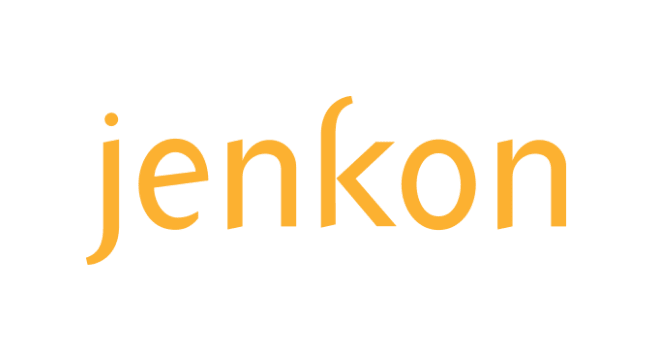Jenkon has led the evolution of software technology in direct selling since 1978. Its leadership began with the industry’s first fully automated commissions processing systems. It continues today with Jenkon’s cloud platforms for omni-channel and e-commerce solutions for sales representatives, their retail customers, and their online social communities.


4x
Reduction in storage area network (SAN) costs and space
3x
Reduction in time and resources required to manage backups
About Jenkon
The Challenge
For decades Jenkon has provided its software solution, J6, to some of the largest direct sellers in the world, such as Unilever and Tupperware. In recent years, it initiated a digital transformation and adopted a cloud strategy to move its software development and J6 platform to the cloud, as well as its internal infrastructure for uptime, reliability, and resilience.
Part of its transformation was consolidating physical servers into Microsoft Hyper-V virtual machines (VMs), managing business critical data including financials, payroll, internal data processing, code repositories, and file servers. Additionally, it migrated from Microsoft Exchange on-premises to Microsoft 365 to leverage Exchange Online, OneDrive, and SharePoint Online.
Jenkon was backing up VMs on-premises to its legacy solution, Quest NetVault, and backups were on disk stored in a SAN. Not only was this risky from a disaster recovery (DR) perspective, but Jenkon had no backup solution for Microsoft 365 data, instead relying on Microsoft’s replication. Were this Microsoft 365 data to be corrupted or lost, Jenkon did not have a way to recover it. The company needed a modern data protection solution that could protect both on-premises and cloud applications, provide offsite data isolation, and offer cloud-based recovery.
The Solution
Jenkon’s IT Manager, Leo Rodriguez, had previous experience with Veeam, so the company evaluated it for VMs. However, it would have required Jenkon to provide on-site storage resources and then duplicate them to the cloud. “With Veeam, there would have been a doubling of costs and storage,” said Leo.
Jenkon’s core requirement was the ability to store backups in the cloud so that it could be prepared for any type of disaster, and recover flexibly and efficiently. Leo’s team did a proof of concept (POC) with the Druva Cloud Platform.
“We did a test with a couple of physical servers and VMs with a few hundred gigabytes of data. The advantage with Druva is backups happen natively to the cloud, enabling us to recover from any type of disaster. We didn’t have to run a secondary backup job. We ran it once and it was where we wanted it to be – off-site and secure,” said Leo.
Jenkon implemented the Druva Cloud Platform to protect business critical data on Microsoft Hyper-V and in Microsoft 365. The implementation went smoothly, and the team has been able to reduce time and resources, cutting backup management from three people to one.
When Leo’s team needed Druva Support, they were pleased with the fast and knowledgeable response. “For someone who’s been doing IT for many years and worked my way up from the help desk, I was impressed with the level of knowledge from Druva Support,” he added.
The Results
One of the earliest benefits Jenkon achieved from its implementation of the Druva Cloud Platform was in storage savings. “Druva enabled us to considerably reduce our hardware footprint from four Pure Storage arrays to one, with no storage space consumed by backups. The resiliency and availability of data with the Druva Cloud Platform means our data is secure and recoverable at any time. This frees up our SAN and will facilitate Jenkon’s growth,” said Leo.
Incidentally, when one of the physical blades hosting some of its VMs failed, all backups with Druva Phoenix resumed normally the following day without user intervention. “After we fixed the issue with the blades, all VMs migrated as expected, and there were no backup failures. I never went into the Druva management console to update anything. Druva continued working as intended, giving us the uptime, reliability, and resilience we needed,” said Leo.
Leo showed this success to Jenkon management, demonstrating they made the right decision with Druva for DR. He was able to prove that Jenkon’s business critical data, including customer data, is secure in the Druva Cloud Platform. Druva enables Jenkon to keep data for the long term (i.e., weekly backups for three months, monthly backups for one year, and yearly backups for three years), helping it facilitate compliance with Sarbanes-Oxley (SOX), the General Data Protection Regulation (GDPR), and payment card industry (PCI) requirements.
In addition, Druva helps Jenkon protect its Microsoft 365 data, including OneDrive. “The Druva Cloud Platform protects us if an employee leaves the company. If we need to recover an email from a departed employee or documents stored in OneDrive after Microsoft’s 60 day time period, Druva enables us to recover it from the cloud and restore it as needed,” said Leo.
Overview
- A single pane of glass through which IT manages two different sets of backup data and completes restores of physical servers, Hyper-V VMs and Microsoft 365 data
- Cloud-native backup and recovery means no hardware and minimal administration, and the flexibility to grow and scale infrastructure on demand
- Reduction in the number of people needed to manage backups, as what used to take knowledge from three people can now be done by one person